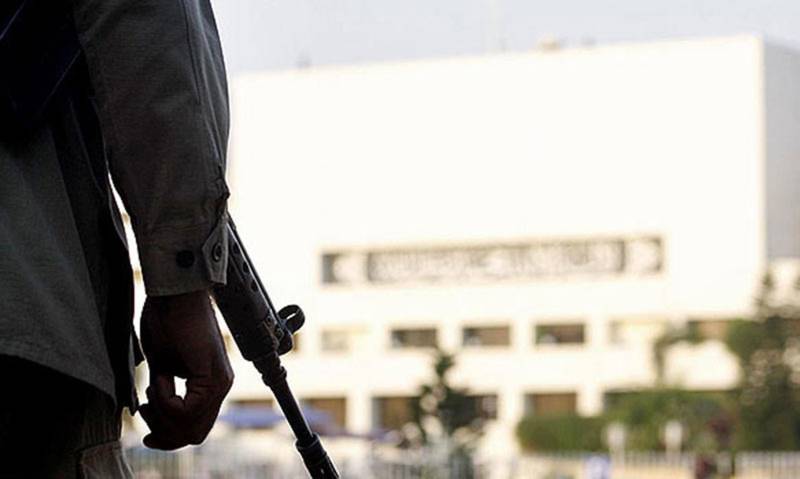LAHORE: The war on terror is going on with mixed success as Pakistan continues to fight it against non-state actors without there being any effective witness protection programme. There is no law at all for protection of witnesses in Punjab, the most populous province of the country. The federally administered tribal areas, which are the central stage for the fight against militancy, also remain without any proper legal arrangement for security to the witnesses. Sources in the Ministry of Law, Justice and Human Rights told The Nation there is no immediate plan to start a formal protection programme for witnesses and their families in cases that are declared very important in bringing terrorists and criminals to justice.
The Protection of Pakistan Act, 2015, passed by National Assembly has a provision for the witnesses’ protection. But, the single provision too has not been practically implemented. Sindh Assembly was the first legislative body to pass a witnesses’ protection law in 2013 but it has yet to be implemented. On paper, the law allows the witnesses to conceal their identities by wearing masks, changing voices and appearances. It also provides for proper protection to the witnesses’ family and close relatives.
As a result of non-implementation of this law, the only witness in Sabeen Inam case was murdered. The witnesses of Wali Babar, a journalist who was killed in Karachi, did not appear in the court to record their statements. Pakistan Bar Council Vice Chairman Azam Nazir Tarar told The Nation special law for the witness protection does not exist at federal level. “However, Anti Terrorism Act provides a provision in this regard. A national level seven-member committee is working on the reforms of the criminal justice system of the country. The committee has met four times with Prime Minister Nawaz Sharif and the issue of witness protection has also been discussed.
“There should be special legislation for the witnesses’ protection from under trail terrorists and hardened criminals. Currently, if the court desires or special request is made for protection, it is provided to the witness. The level of protection required for the witness varies from case to case,” Mr Tarar said. Trial of the cases does not complete without the recording of the witnesses’ statement and thus, the process of law becomes slow and finally the aggrieved either fails to get justice or the justice is delayed.
In the absence of witnesses’ protection law people are afraid to testify against hardened criminals and if they do, they and their families get life threats and in some cases even killed. There are a number of examples where the witnesses either did not appear before the courts to testify or deviated from their earlier statements. During last four months all 13 eye-witnesses turned hostile and refused to identify accused in the case of Mustafa Kanju, the son of Siddique Kanju. Mustafa was allegedly involved in killing Zain, an orphan boy, and injuring Hussain, a laborer’s son, in Cavalry Ground area.
Police first produced five eye witnesses before the court including Afzal, the maternal uncle of the deceased boy, who first testified against Mustafa Kanju but later he and other witnesses stated in the court that they did not see him committing the crime. Sources told The Nation Punjab Chief Minister Shahbaz Sharif also provided private counsel to the complainant party after paying Rs1 million to fight the case. Even then, Afzal, who was the complainant as well as one of the witnesses, retracted his initial statement. Later, the prosecution took over the case and got registered a case against Afzal, the complainant. But surprisingly he was set free. Sources said prosecution tried its best to motivate the witnesses to testify against the accused but they refused. The prosecution pleaded the court that it wanted to cross-examine the witnesses in the presence of the media. The court accepted the plea but the witnesses refused to testify.






